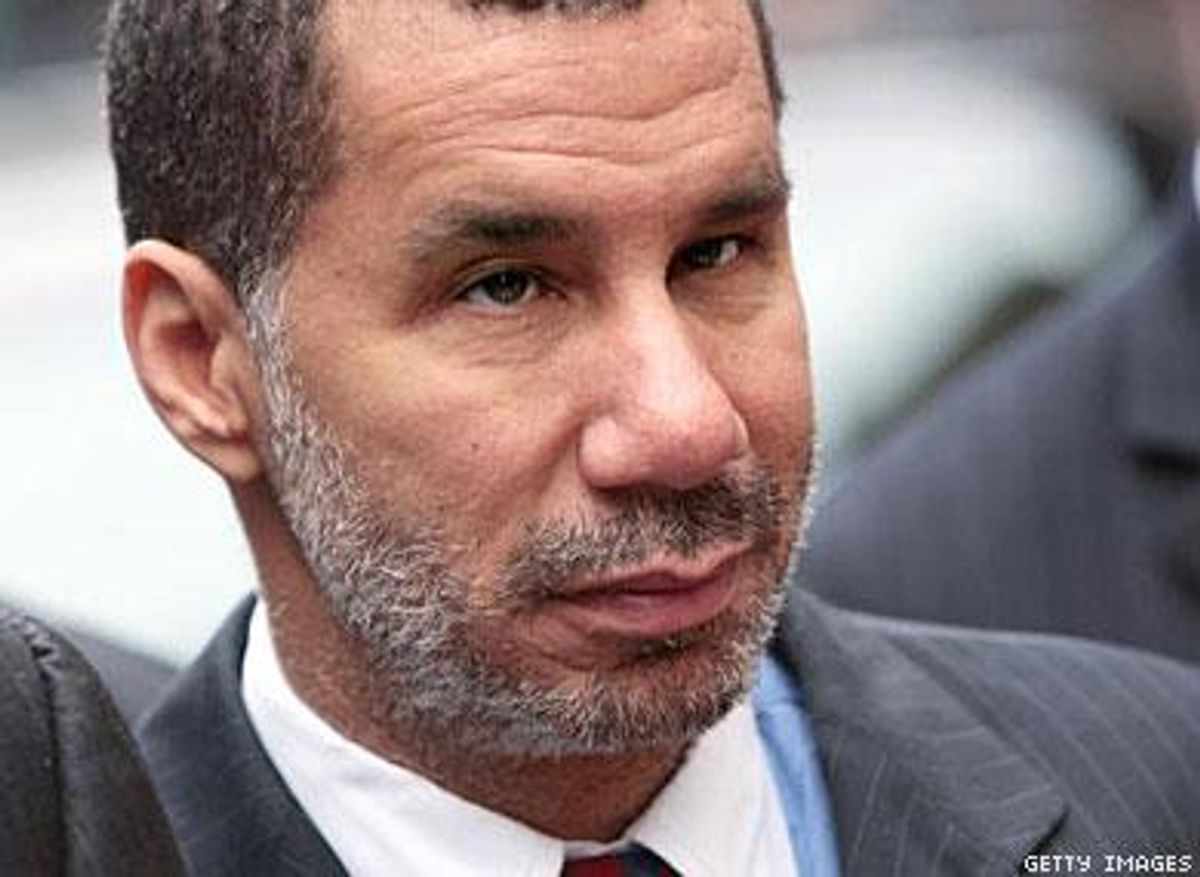New York governor
David Paterson addressed an adoring crowd of more than
1,100 people at the annual Empire State Pride Agenda
fall fund-raiser, raising a record $1.1 million,
according to Pride Agenda staff.
The fund-raising
numbers were particularly significant because Democrats
are two seats away from taking control of the New York State
senate and most LGBT activists believe that would
clear the way to send a same-sex marriage bill to the
desk of the governor. The Democrat-controlled assembly
passed a marriage bill last year by a vote of 85 to 61.
Paterson, who has
supported marriage equality since 1995, endeared
himself further to LGBT citizens earlier this year when he
became the first governor to declare that his state
would recognize gay marriages performed in California
following that state's supreme court's decision
to legalize same-sex nuptials.
"I know the
senate has a lot of different issues that they need to
work out," Paterson said of the Republican-controlled
chamber, which has failed to take up marriage
legislation. "I knew they were busy, so on May 14 of
2008, I thought I would sign the memorandum that would
respect marriage equality in any states that permit it right
here in New York State," he said to a thunderous
standing ovation. "I thought you would like that," he
added as people settled back into their seats.
Paterson, who is
African-American, drew a correlation between the black
civil rights movement and the experience of gays and
lesbians. When he was 10, he recalled, he
saw images of people who were beaten during the
civil rights march in Selma, Ala. Unfortunately, he
continued, when his daughter was 10, she saw the clips
of a gay man who was bound and beaten with the barrel
of a gun and left for dead on a fence in Laramie,
Wyo.
"What we hope is
that the next generation only knows about these
tragedies by reading about them in history books because
there will be no such bias and hateful incidents," he
said. "But if we're going to be able to get past the
violence, we're going to have to deal with the issues
of legal inequalities that are experienced by lesbian, gay,
bisexual, and transgender people right here in New York
State every day."
Paterson was the
lieutenant governor when the New York State assembly
passed its marriage bill in 2007, and as acting
president of the senate, he broke with tradition by
lobbying for the legislation on the floor of the
assembly the day of the vote.
"I am most
pleased that a number of African-American and Hispanic
legislators who at first were unable to see the congruent
connection between the rights of lesbian, gay,
bisexual, and transgender people and our struggle
waged throughout the centuries were able to see it that
night and voted for that legislation," he said.
Paterson warned
against characterizing the battle for equal rights as the
promotion of an agenda. "The fight for people who are gay or
lesbian or bisexual or transgender to have the same
rights as any other Americans is as American as
the signing of the Constitution," he said.
He capped his
speech by reiterating his commitment to passing a marriage
bill and signing it into law: "We're going to persevere, and
we're going to do it with a new sheriff in town who's
going to sign marriage equality legislation."
In a press
conference following his speech, Paterson downplayed the
notion that passage of California's marriage ban,
Proposition 8, would have much impact on passing a
marriage bill in New York.
"I think it would
probably make some people who had been antagonistic to
the idea think that they could remain that way," he said.
"But I think in New York there are enough senators in
the senate as it's comprised right now to pass
this legislation."
Paterson
described how taking a vote on what he called "meaningful
legislation" challenges people to seriously assess the
implications of their vote.
"It's the moment
when people really have to gauge whether or not they
want to deny people who care about each other the right to
formalize it," he said, adding that he believes a
number of assembly members who originally intended to
oppose the marriage bill actually voted to pass it in
the end.
"That's the
reason why I've always been in favor of meaningful
legislation getting to the floor of the house and the
senate, even if it loses," he said.


















































































Here's our dream all-queer cast for 'The White Lotus' season 4